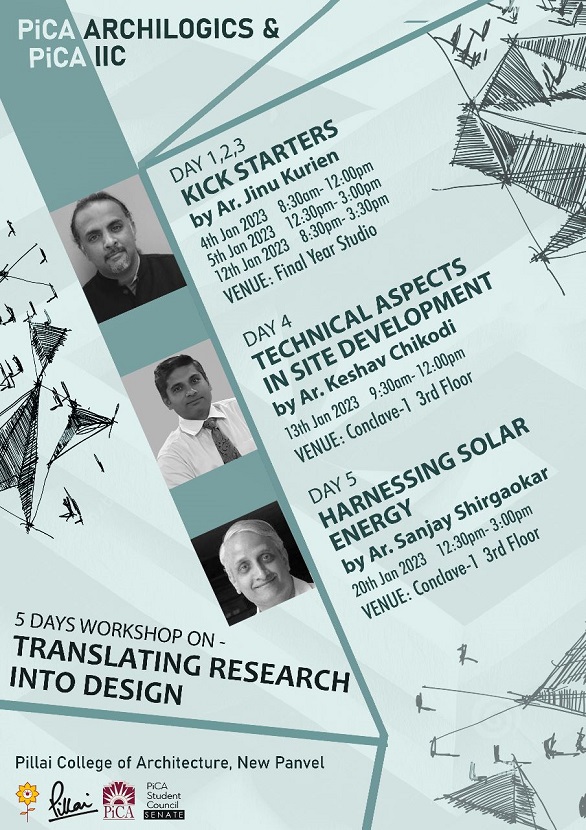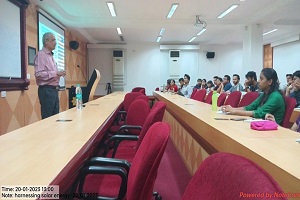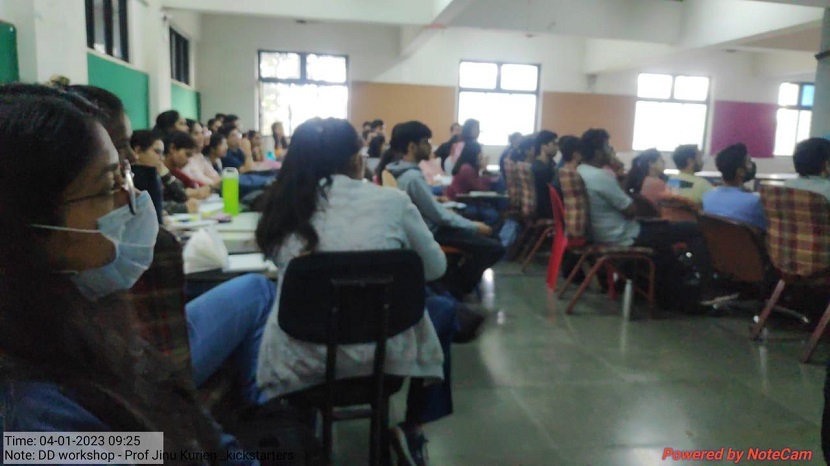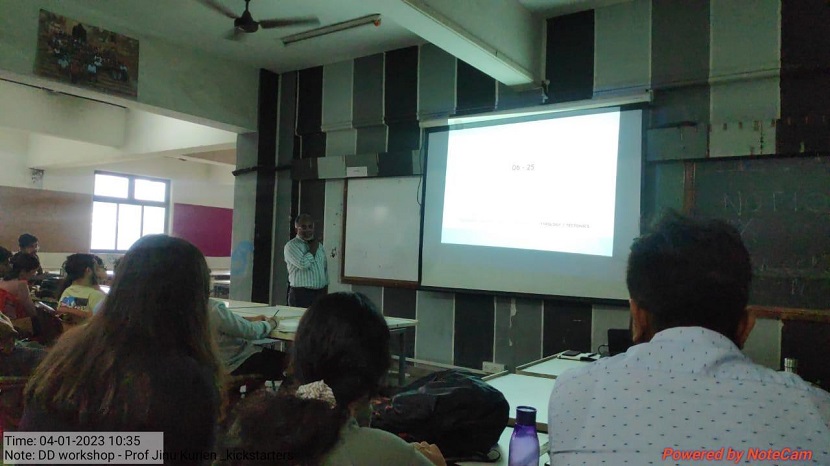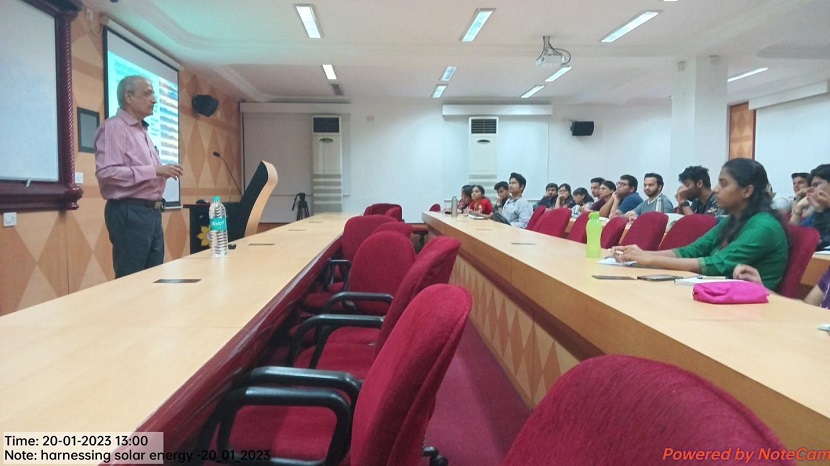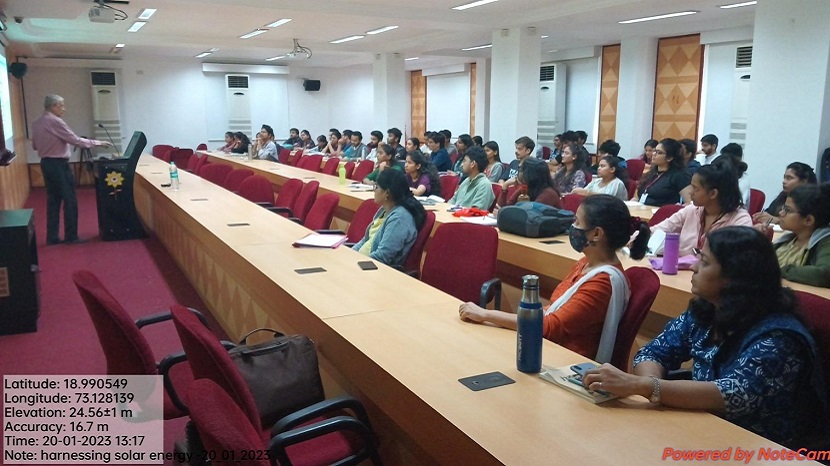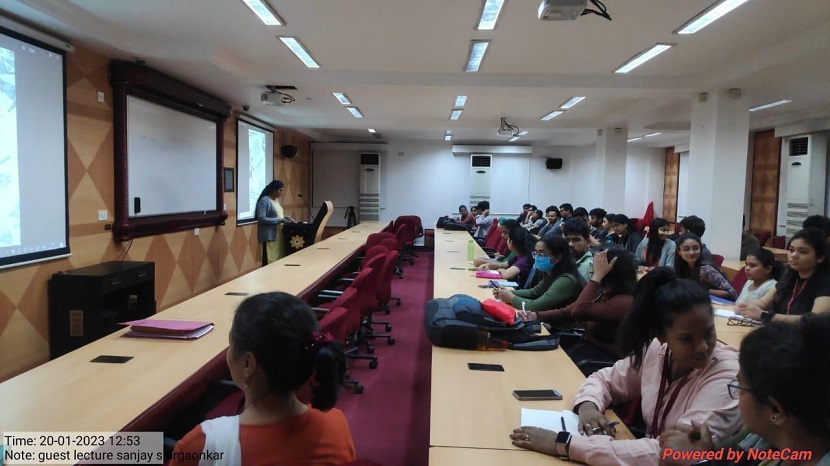| Session | 2022-23 | |
| Year | 5th | |
| Date: 4th January, 2023 5th January, 2023 12th January, 2023 13th January, 2023 20th January, 2023 | Venue: 5th year studio 5th year studio 5th year studio Conclave Conclave | No. of students 62 62 39 50 55 |
| Faculty | Subject coordinator: Prof. Sarojini Lohot, Prof. Ajita Deodhar Attendees: Faculty members of PiCA |
|
Day 1, 2, 3 Day 4 Day 5 | Guest lecturer: Prof. Jinu Kurien - Kickstarters Ar. Keshav Chikodi – Technical Aspects in Site Development Ar. Sanjay Shirgaonkar – Harnessing Solar Energy |
|
A Five-days workshop was organized by Pillai college of Architecture in association with PICA IIC for the students of semester X. The workshop was conducted in the early stage their thesis design so that they can consider and incorporate various aspects right from the initial stages of their design. The workshop was divided into three parts. 1st part comprised of a series of three sessions on three days and 2nd and 3rd were lectures scheduled in the coming week.
PART 1
Kickstarters by Prof. Jinu Kurien
After the students are done with their DD-1 jury they are ready with all the research, analysis, and written proposal. But, many of them face difficulties to build a bridge between research and design and struggle to start the design process. Thus, the workshop aimed at understanding the various entry points to the design solutions.
A three-day workshop was conducted by Prof. Jinu Kurien. The daily format of the workshop was a lecture followed by a review of 2-3 students. The examples selected for the review were of dealing with a variety of niche areas but were in alignment with the day’s session. The aim of the common review was to explain to everyone how can they apply the discussed parameters to their own projects.
Day 1 – 4th January, 2023
The first day started with a presentation by Prof. Jinu focusing on the exploration of four directions; Program, People, Place, and References. He showed various examples to students to make them understand the application of parameters. The second part of the day was the review by two students. Amulya Jaiswal and Subhiksha R presented their work to the class. It was reviewed by prof. Jinu, where he explained the parameters through their topics and design processes.
Day 2 – 5th January, 2023
The second day started with a lecture focusing on the two directions, Typology and Tectonics. Sanket Vibhandik and Angel Jaison presented their work and it was reviewed by the professors. Various parameters were discussed as to how can they keep in mind their research topic, and design ideas while going ahead with the actual design. Prof. Jinu gave two references to the students and explained how can they use those books in the design process.
Day 3 – 12th January, 2023
The third day of the workshop was a review day. Three students, Rau Tambat, Sharvari Lad, Achintya Hrishikesh presented their work and it was discussed in common by faculty members and comments and suggestions were given to them.
The three days of the workshop were really helpful for the students as they got exposure to 25 entry points to start with their design and to follow them at various stages during the entire process of designing.
PART 2
Technical Aspects in Site Development by Ar. Keshav Chikodi
For students to understand the importance of design and planning with integrated and specialised services (applicable to each site), active and passive systems of construction (related to Green Building Systems / Sustainability), and applying the same to Design Dissertation. Ar. Keshav Chikodi has many years of experience in practice. He presented this topic in following way:
- Services and other important factors to be considered while Site Planning.
- Byelaws, references for site (site area varies from 5-10 acres), Funding for Private/Public Project.
- Overview of NBC
- Sustainability aspects in Site Planning.
He explained the different services on site through his projects, also explained the problems that one need to handle on site and how to deal with it. Phasing of the site as per the site conditions, services like firefighting, electricity, etc rules to be followed as per UDCPR or chief officer in the urban area. Mandatory open Recreation area. all the NBC & UDCPR rules & regulations were explained by him , the session ended with Questions & answer session.
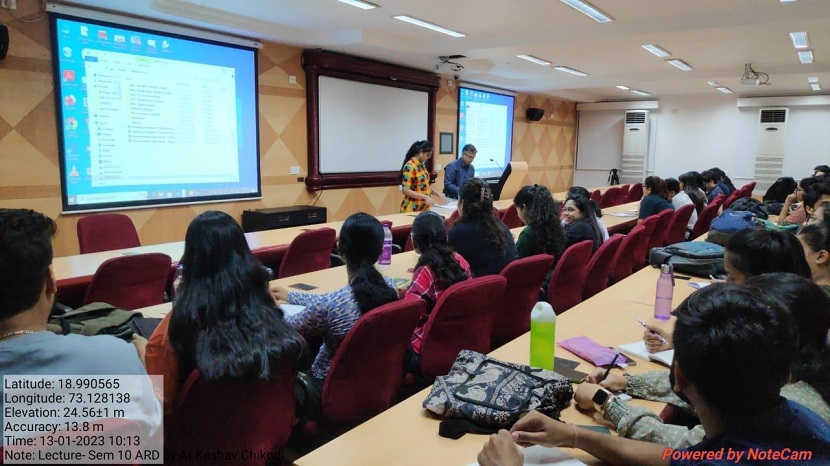
PART 3
Harnessing Solar Energy by Ar. Sanjay Shirgaonkar
In order to make architecture sustainable, various methods are adopted. Using Solar energy is one of the important ways of achieving sustainability. 5thyear students need thorough understanding of this topic as a specialized service to be used in their Design dissertation project.
Prof. Shirgaonkar has many years of experience of using Solar Energy efficiently in his practice. He presented this topic in following way:
- Need of Solar energy
- Concepts of Solar panels system
- Effective ways of using solar panels
- Case studies
Prof. Sarojini welcomed Prof. Sanjay Shirgaonkar.
In order to make sustainable Architecture various methods are adopted to make the building “Green” & energy efficient. Using Solar energy is one of the important ways of achieving sustainability. Shirgaonkar Sir introduced the topic explaining how Harnessing Solar Energy is the need of the hour.
He pointed out that many places around the Mumbai Metropolitan area do not have uninterrupted power supply 24/7. Thus, there’s a need for alternative ways of power generation or backup.
He explained to the students various ways of using solar panels to generate power in the architectural projects.
Shirgaonkar Sir presented case studies of buildings where solar panels were installed and pointed out how the bills of MSEB went down significantly.
He discussed technical details required for choosing Solar panel system in a project. Choosing appropriate power system:
- Off grid system (no connection with grid)
- On grid system
- Hybrid system
- Fixed angle system
Shirgaonkar Sir elaborated that based on the latitude angle of the site where the project is located, solar panels will be installed accordingly. Shadow Analysis of the build form to derive at the space for installation, interpretation of sun path diagram, Application on Terrace, sloping roof, solar farm & sunflower shaped solar panel. Efficiency of Solar panels, PV Panel mounting systems. Loss in energy when converted from DC to AC.
Interactive Questions and answers Session was taken at the end where students asked their doubts. The lecture ended with Vote of Thanks.
